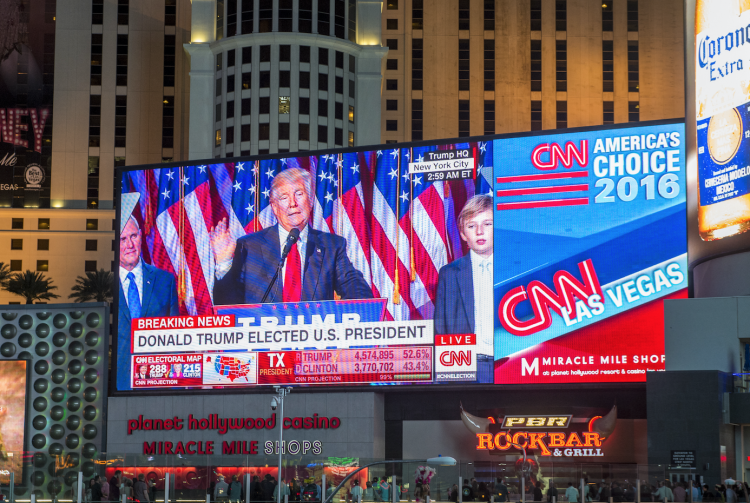The Dangerous Demographics of Democracy

2016 was a year of democratic disappointments: the Brexit referendum in Britain, the election of Donald Trump in the United States, and the "No" vote for the peace treaty in Colombia.
What went wrong? My hypothesis is is that was demographics. In short, those that won't be affected by long-term consequences made poor choices for those (young people) who will be affected. Let's take a close look at the demographics in each of these three cases.
Brexit
The United Kingdom is scheduled to exit the European Union in 2019. This resulted from a democratic referendum that proved David Cameron wrong — and cost him his job. Brexit won with 51.9% of voters in favor of leaving the EU, against 48.1% who wanted to stay. The results show a heavy polarization of the British population. Most revealing were the demographics of the referendum results. The 75% of those between 18 and 24 voted to stay, whereas 61% of those older than 65 years voted to leave. Older Britons, with no clear knowledge of what it means to live in a globalized world, chose to leave. Maybe their motivation was pride, believing that they'd be better off by themselves and not in the EU. Now the negotiations between the UK and the EU have started and there is a long road ahead for this Brexit to be finalized. Meanwhile, many younger Britons feel betrayed.
Image Credit: Shutterstock
"NO" to the peace treaty in Colombia
Colombia has battled an internal armed conflict with guerrilla group las FARC for more than fifty years. The war has left more than 200,000 dead and millions of victims. The current Colombian president, Juan Manuel Santos, started the dialog for peace. They created a peace treaty after four years of negotiations between the government and the guerrilla leaders. Democratic elections were held in October of 2016 and the "NO" to the peace treaty won with a bare majority — 50.2% against the 49.7%. Without analyzing the details of the treaty, it is important to look at the demographic map to understand who voted for what option. The results showed a clear division between the towns who suffered the most from the conflict and those who weren't directly affected. In the parts of the country where there were higher rates of victims, "YES" was the clear winner. The FARC guerrilla fought the war mainly in the periphery of the country in the Amazon jungle where their camps and soldiers are located. Which is why the population there voted in favor of peace. In the capital city, Bogota, the option for peace won too, with 56.1%. The big concern there was losing children in this war. The option for peace was shot down by voters who had less to lose. Demographics again.

Image Credit: Wikimedia Commons/ Robert Thivierge
Trump wins the US elections
A previous Hollywood star, Ronald Reagan, made it to the Oval office — but how could Trump's victory happen? Here is the answer: divisory discourse, rejection of Obamacare and Plan Parenthood, offering to ban Muslims from the US and denying climate change. This is another example of how democracy shocked the world in 2016. Republicans and Democrat voting patterns are known, but let's look at demographics. Young voters in America voted for Hillary Clinton. She had the support of 55% of the voters from age 18 to 29 years, contrary to Trump who got 37% in that same demographic group. Like in the UK, the youth lost. The majority of American citizens older than 45 years old voted for Trump. This result will determine the future of the country, a future in which those didn't want Trump as their president — young Americans — will have to live.
Image Credit: Flickr/Ted EytanNow What?
There is no way around a democratic process, the people vote and the majority wins. Today, a young UK citizen will live with the consequences of a referendum that older Britons won. In Colombia, people who suffered the direct effects of the war — such as being kidnapped, losing family or even their homes — have to wait for another opportunity for peace. And a young woman in the United States has to tolerate a misogynistic president because the older population chose him.
Is this fair? No, its democracy. '
As an Ecuadorian following these events, I am anxious. I have friends in the UK who are scared of the economic and social effects of Brexit. I have family and friends in the US who are scared for their future in a country where the president no longer welcomes them. And as a citizen of the country neighboring Colombia, I grew up watching the news of terrorist attacks by the FARC. While I am not a citizen of any of these countries, as a young person I am deeply worried about democracy.









